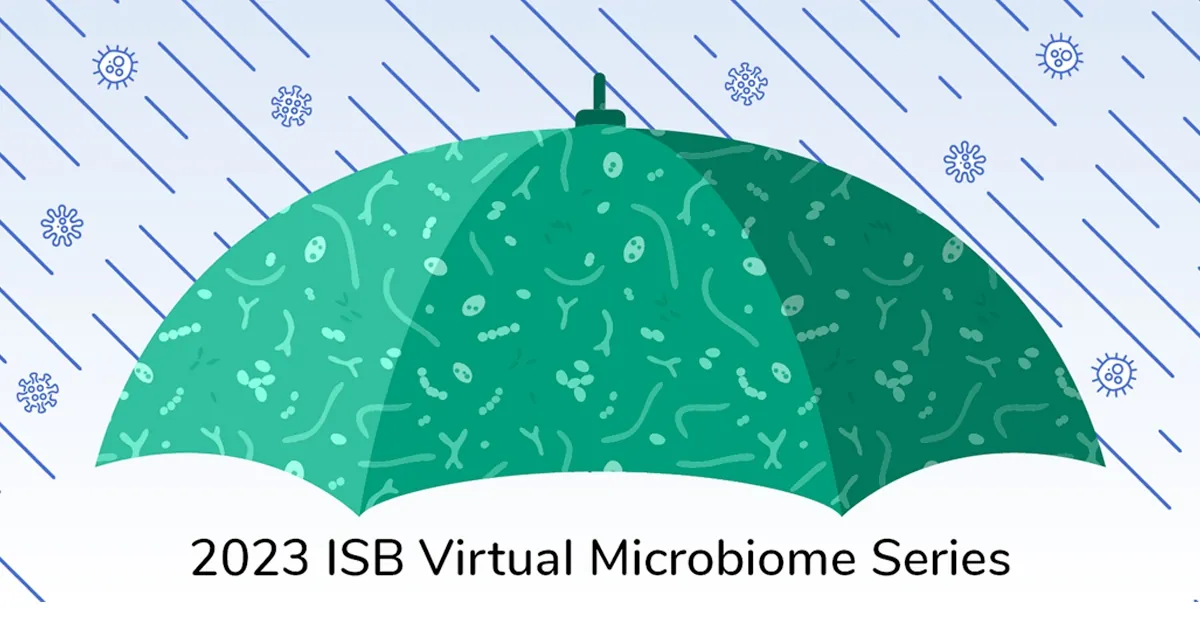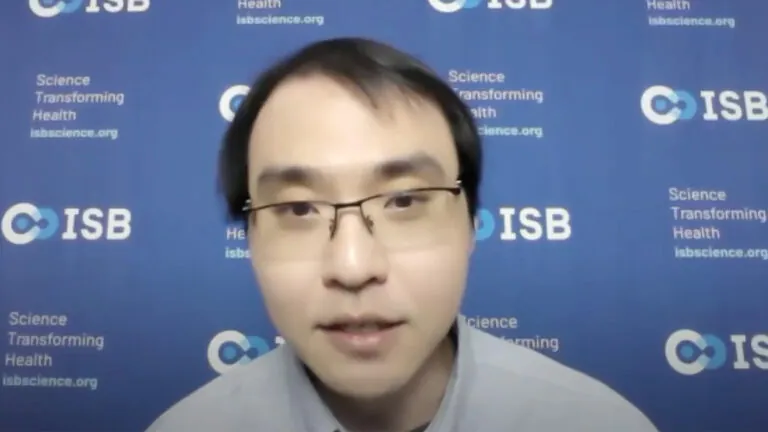2023 ISB Virtual Microbiome Series
The 2023 ISB Virtual Microbiome Series consisted of a two-day virtual course and one-day symposium on how the ecology of our guts protects us from pathogens.

We hosted the 2023 ISB Virtual Microbiome Series consisting of a two-day virtual course and one-day symposium on how the ecology of our guts protects us from pathogens. This was the fourth microbiome series of its kind, and was geared toward graduate students, postdocs, principal investigators, industry scientists, educators, clinicians, or any other variety of microbiome-curious people from across the globe.
The event was recorded. You can watch the full playlist on YouTube, or scroll down to see the full collection of videos.
Series background
The trillions of commensal (non-harmful) microbes that live in and on our bodies form a protective barrier against invasive species and opportunistic pathogens (pathobionts), like a second skin or an extension of the innate immune system. This barrier is largely maintained by metabolic competition between commensals and pathobionts and by interactions between commensals, pathobionts, and the host immune system.
Some microbiota (commensal microbial communities) are more permissive to invasion than others. Once a pathobiont has colonized, commensal microbes can both facilitate and thwart virulence, depending on ecological context. Both symptomatic and asymptomatic carriers of a pathobiont can spread it to others in the population. In order to reduce the burden of infectious disease, a better understanding of how our commensal microbiota can be bolstered to protect us from invasive, opportunistic pathogens is needed. This year’s course and symposium are dedicated to exploring the mechanisms that underlie the barrier function of our microbiota against infectious diseases.
ISB hosted a series of events in October of 2023 that leverage data sets from recurrent Clostridioides difficile patients before and after fecal transplant to understand the determinants of pathobiont colonization and highlight leading microbiome researchers who are working to better understand pathobiont-commensal-host interactions in health and disease.
Virtual Microbiome Course – Day 1
Dr. Nick Quinn-Bohmann: “Analyzing amplicon sequencing data with Qiime 2, Part 2”
Virtual Microbiome Course – Day 2
Virtual Microbiome Symposium
Session 1: Commensal-Pathobiont Interactions and Disease
Session 2: Commensal-Host Interactions and Disease
Session 3: Clostridioides difficile: Ecological Context Is Key


